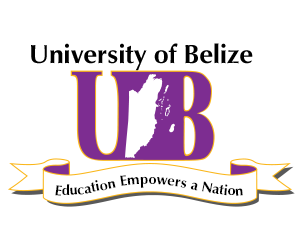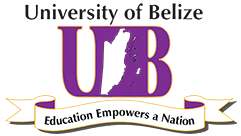- Version
- Download 362
- File Size 1.00 MB
- File Count 1
- Create Date September 6, 2019
- Last Updated September 24, 2019
UB Imprint Vol 59: The Rector of UNAN-Managua Speaks on the Role of University in Development
“The university is by definition universal and in it fit all tendencies and ways of being. It is therefore humanist par excellence and if we combine its definition with that of freedom, we will have a precious sum, since the freedom that the university seeks is that of the spirit.” - Doctor Mariano Fiallos Gil, Father of University Autonomy in Nicaragua.
On behalf of the Consejo Nacional de Universidades (CNU), the Consejo Universitario de la UNAN - Managua (Autonomous University of Nicaragua - Managua) and the Comunidad Universitaria nicaragüense, I warmly welcome you to Ordinary Session number CXIV of the Consejo Superior Universitario Centroamericano y Caribeño (CSUCA).
Our thanks to the honorable members of CSUCA for having accepted our offer to hold this session here in Nicaragua. We also thank Dr. Roger Armando Arias, Rector of the University of El Salvador for having given us the space and allowing us the honor of hosting the inauguration of his position as President of CSUCA for the 2019-2020 period.
We also thank Rector Clement Sankat for his leadership of CSUCA during 2018-2019 and for placing his trust in UNAN-Managua to accompany him in the implementation of his Medical Degree at his university and, of course, in his country Belize. The latter is an action that our School of Medical Sciences has taken on with great satisfaction because they represent exchange and mutual learning opportunities.
This project that we have initiated together with University of Belize is an example of academic integration among the member universities of the CSUCA, which must continue to be stimulated, because the universities are experiencing times of change, motivated by the dynamics of the social, economic, political and scientific contexts.
Consequently, Central American universities are called upon to strengthen the academic spaces of integration, helping us close the gaps between our highest houses of study and society in each of our countries, which in turn, requires dialogue with governments, with productive sectors, with communities, with unions and organized sectors, in order to achieve effective articulation in the process of production and generation of knowledge that contribute to sustainable human development.
I am sure that we are all aware that the university exists to contribute to the endogenous development of our countries; since autonomy facilitates our connection with society in general, the importance of rethinking our role as training institutions and generators of knowledge, i.e. science and technology through research and innovation.
In this increasingly convulsed context, universities must contribute to peace, promoting dialogue in all our spaces, encouraging assertive communication through active listening and making sound judgments based on the results of research we carry out on the events that generate conflicts.
In this sense, I would like to share with you that the National Council of Universities endorsed the program called “University for Peace”, whose objective is to promote the culture of peace and reconciliation in the university community through knowledge, the practice of values and attitudes of respect, solidarity and love of life, as a fundamental basis for peace, development and happiness of each Nicaraguan.
This in turn implies:
- Creating ongoing spaces of integral formation in values, based on the conception of education for the common welfare.
- Socializing good practices and life skills, from collective construction and education in values.
- Contributing to the educational, social, economic and sustainable development of the country, from a human rights approach and the promotion of a culture of peace.
Perhaps this topic is familiar to many universities in the region,. However, I think that by looking inside each of our universities and by reading the context , we see, on the one hand, advances in science and technology and, on the other: commercial war, organized crime, migration, discrimination, poverty. In both cases, we face ever greater challenges, which invites us to assume new challenges permanently: for example, to analyze within the classroom the great advances but also the great problems. This is, of course, in line with the role of teachers, who may, in turn, facilitate learning using the information available. The dynamic educational act will facilitate the understanding of the phenomena.
Our commitment must be to contribute to the development of critical awareness, to education in social values, such as altruism, solidarity, cooperation, which is why it is essential to address in the classroom, in addition to the aspects mentioned, themes such as love, affection, sexuality, ethics, peace, forgiveness, happiness and harmony. However, this is not to be done from the repetition of concepts but from the construction of experience, to achieve a rounded education. Similarly, it is necessary to reflect with young people on the implications of the false values such as fame, beauty, power and wealth, of consumerist society that are promoted through social networks.
When it comes to inclusive education, education for diversity, we must not only think about clearing away architectural barriers, but also we must get ready for inclusive educational actions. We are diverse, so we must also strengthen interculturality and gender equality.
I am aware that in all our universities we are rethinking our work, but the most important thing is that we reconnect the universities on the basis of trust to establish strategic and quality alliances that contribute to the achievement of the 2030 agenda and to the ODS. Let us make the essence of the CSUCA a reality, which is a model of academic integration in the region. Let us trust in our capacities and let us strengthen our universities’ autonomies to be and to do what corresponds to us in order to meet the needs of our people.
I conclude by welcoming you again to the 114th ordinary session of the CSUCA. Central America needs peace and our universities have great opportunities to contribute to achieving this. Therefore, let’s leave traces of changes centered on solidarity, mutual respect, trust and peaceful coexistence.
To freedom through the University!
Ramona Rodríguez Pérez
Rector of UNAN Managua
President of CNU
Managua, 19 August 2019





